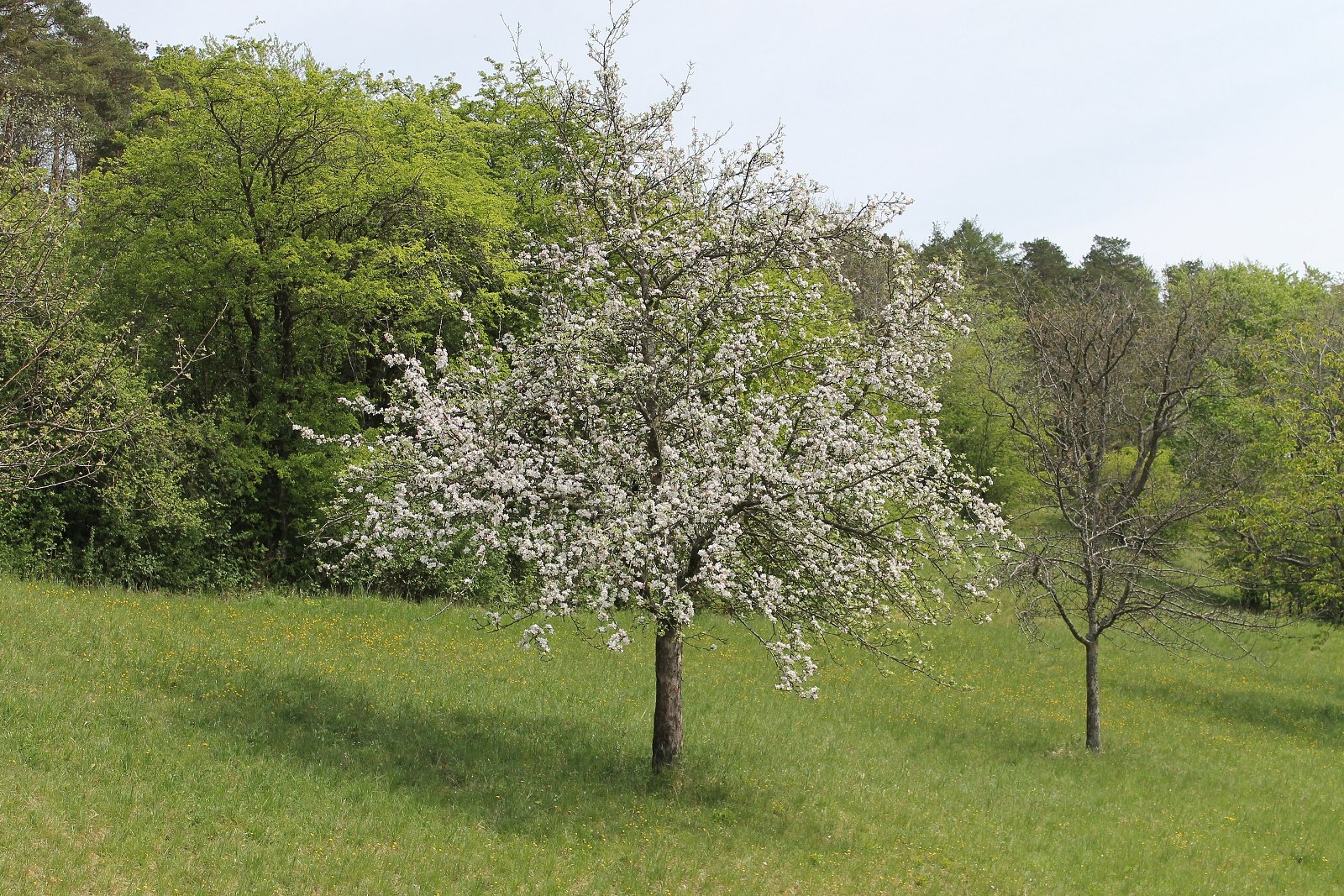Prunus cerasus
Sour cherry
Species Tolerances
- Drought Tolerance: High
- Shade Tolerance: Yes
- Waterlogging Tolerance: Low
- Frost Tolerance (trees from warmer climates may be frost tolerant, but their flowers may not be): Yes
- RHS Hardiness: H6
- Optimum Conditions for Growth:
A small tree or bush which is shallow rooted and will grow in a wide range of fertile, warm soils, though does not tolerate heavy clay. Prefers a sunny site. No strong dependence on acid or alkaline soil pH. - Susceptibility to Pest/Disease:
No major pests or diseases at present

Prunus cerasus near Gipf-Oberfrick, Aargau, Switzerland/ Daniel Ballmer/ https://creativecommons.org/licenses/by-sa/4.0/deed.en
Service to Pollinators
- Summary of Service to Pollinators:
An excellent source of nectar and pollen and some honeydew for all pollinators in early summer. - Nectar Value to Pollinators: 3 (of 0-3)
- Honeydew Value to Pollinators: 1 (of 0-3)
- Pollen Value to Bees: 3 (of 0-3)
- Flowering Period: March-Apr
Risks
- Human Toxicity: Toxic
- Livestock Toxicity: Toxic
- Invasive Risk: No
- Suckering: Yes
Products
- Edible Fruit: Yes
- Edible Leaves: No
- Edible Sap: No
- Edible Seeds: No
- Honey, major source in UK: Yes
- For any medicinal potential, see 'Further Details' below.
- Timber: No
- Livestock Fodder: No
- Other Products:
Utility
- Nitrogen Fixation: No
- Organic Matter Accumulation: Yes
- Phytoremediation: Yes
- Deacidification: Insufficient Data
- Windbreak: No
- Soil Erosion Control: Yes
- Shade or Shelter: Yes
- Plant Support: Insufficient Data
- Integrated Pest Management: Insufficient Data
- Wildlife Value: Yes
- Wildlife Value Summary:
Good for biodiversity referring to invertebrate diversity feeding on the tree, especially insects. Fruit are available to a large range of birds and mammals. - Graduated Nativeness Classification ⓘ: 2 (of 1-10)1. Historic Native
2. Historic Introduction
9. Neutral Introduction
Further Details
Medium size, adaptable to warmer climate. Frost at around flowering time can knock capacity to bear fruit. Can sucker vigorously.